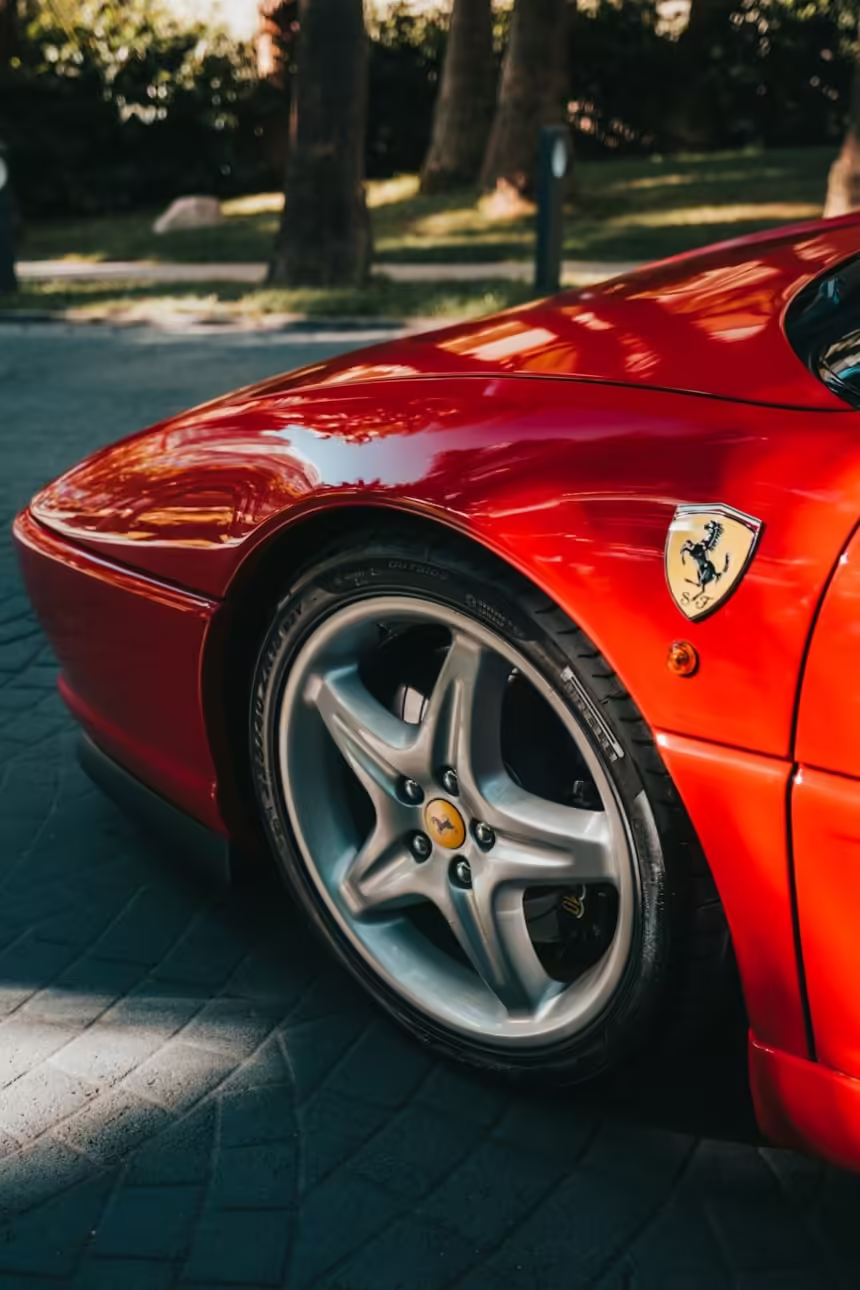FERRARI PUROSANGUE
The Ferrari Purosangue is the first ever four-door, four-seater car in Ferrari’s history, but models with two rear seats have played a significant role in the company’s strategy since the very beginning. Now, in the culmination of 75 years of leading-edge research, Ferrari has created a unique car that encapsulates the Prancing Horse’s DNA, where performance, driving pleasure and comfort coexist in perfect harmony. And that’s why this new model was called Ferrari Purosangue – Italian for thoroughbred.

The start of a new technological era

CCM-R Plus brake system
Co-developed with Brembo and an all-time first for a road-going application, CCM-R Plus uses longer carbon fibres to significantly improve mechanical strength (+100%) and thermal conductivity (+300%) over previous generation solutions, and braking surfaces coated with a layer of silicon carbide (SiC) to offer incredible wear resistance and shorter bedding-in times.
MGU-K electric motor
The electric motor used for the F80 is the first unit developed, tested and manufactured entirely by Ferrari at Maranello. The design of the electric motors draws directly from Ferrari’s experience in racing; specifically, the tooth-coil stator, Halbach array rotor configuration and magnet retention system in carbon fibre are all solutions derived from the design used in Formula 1.
S-Duct
The carbon fibre front bonnet of the F80 features an S-Duct consisting of a fixed element connecting the two front wings. Inside this feature are two flaps following the main profile to complete the triplane wing configuration with curvatures and blower slots inspired by the 499P.
PERFORMANCE
With 1200 horsepower, this is the most powerful road-going Ferrari ever created. 1050 kg of downforce pushes the car firmly onto the ground.
- V6 Powertrain
- 5.75 s0-200 KM/H
- 300 cv/l Specific power output
- 1200 Horsepower
POWERTRAIN
The three-litre 120° V6 F163CF engine of the F80 produces a peak power of 900 HP, for a specific power of 300 hp/l, to which the electric front axle (e-4WD) and motor (MGU-K) of the hybrid system add another 300 hp. The link with motorsports is strong: the architecture of this engine and many of its components are derived from the powerplant of the 499P which won the 2023 and 2024 editions of the 24 Hours of Le Mans.
The Ferrari F80 reconciles the functional needs of performance and high technology in an all-new design language which is nonetheless steeped in Ferrari DNA.

Exterior design
The F80 has a strongly futuristic visual impact with unmistakable references to aerospace. The architecture is defined by a dihedral cross section with its two bottom corners firmly planted on the wheels. From the side view, the rear section has a sculpted flow that emphasises the muscularity of the entire rear wing. The car’s front section is defined by more architectural elements: the wheel arch ends with a vertical panel that stands proud of the door, paying homage to the visual language of the F40.

Architecture
The chassis of the Ferrari F80 has been designed completely from the ground up to meet the ambitious performance targets set for the car.
Chassis
The tub and other elements of the chassis of the F80 were developed using a multi-material approach, where the best-suited material for the task is used for each zone. The cell and roof are made of carbon fibre and other composites, while the front and rear subframes are made of aluminium and are fastened to the tub with titanium screws. At the rear, there is an additional aluminium subframe, fastened to the main rear subframe with screws, for carrying the battery.
Suspension system
The Ferrari active suspension system is undoubtedly one of the showpieces of the advanced vehicle dynamics technologies implemented on the F80 and has been re-engineered from the ground up compared with the version used on the Ferrari Purosangue to tailor it to the supercar soul of this car.

DYNAMIC CONTROL
Another major evolution introduced by the F80 is the new SSC 9.0 (Side Slip Control) system, which now benefits from the integrated FIVE (Ferrari Integrated Vehicle Estimator) function. The new estimator is based on the concept of the digital twin, a mathematical model that uses the parameters acquired by sensors installed on the car to replicate its behaviour virtually.


